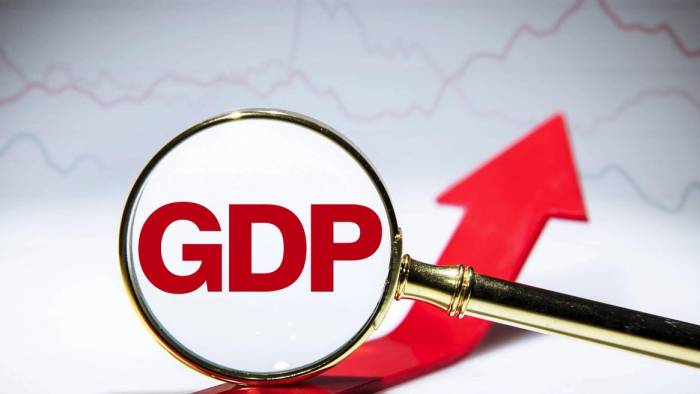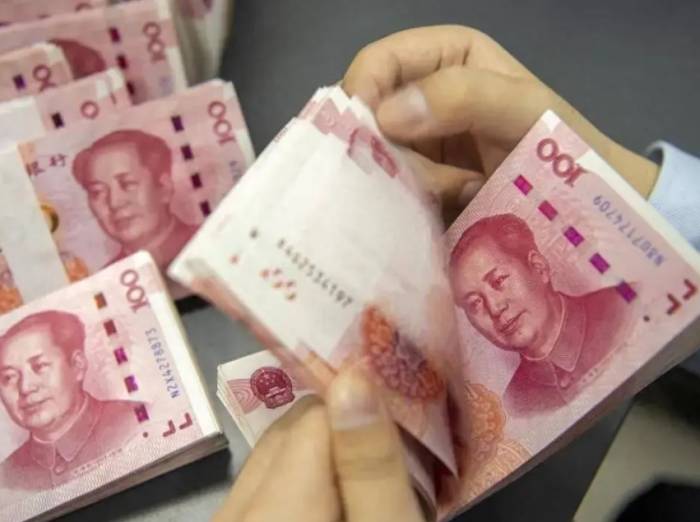Under the increased downward pressure on the economy, recently the People's Bank of China and others have introduced a package of financial incremental policies such as reserve requirement ratio cuts and interest rate reductions to support stable growth. This has also increased external expectations for fiscal incremental policies, as proactive fiscal policies play a key role in driving economic growth.
Affected by factors such as declining revenues, national general fiscal expenditure decreased by 2.9% year-on-year in the first eight months of this year, below the expectations at the beginning of the year. In the current situation where the foundation for economic recovery is not solid enough, many economists suggest increasing the implementation of fiscal policies, expanding the scale of fiscal expenditure through methods such as issuing more government bonds or special government bonds, stimulating total demand, and promoting the economy to operate within a reasonable range.
Ding Shuang, Chief Economist for Greater China and North Asia at Standard Chartered Bank, told Yicai that without the support of fiscal policies, these financial incremental policies might be less effective. Fiscal policies are very important in expanding domestic demand. When fiscal revenue falls short of expectations at the beginning of the year, it is necessary to make up for the funding gap through methods such as issuing more government bonds, so that the expenditure scale remains at the level of the initial budget. October will be a window for observing fiscal incremental policies.
Although many experts agree on the current expansion of the scale of fiscal expenditure, there are different views on the extent and focus of expenditure. The recently published "Report on the Budget Implementation Situation Since the Beginning of the Year" by the State Council, when deploying the next six major work priorities for finance, first emphasizes "improving the effectiveness of fiscal policies" rather than the previous "increasing the implementation of fiscal policies," which is also thought-provoking.
Fiscal Strengthening Becomes Consensus
On September 24, the People's Bank of China, the Financial Regulatory General Administration, and the China Securities Regulatory Commission introduced a package of financial incremental policies, including reserve requirement ratio cuts and interest rate reductions, and other policies to stabilize the real estate market, such as lowering the interest rates on existing mortgages, and creating new monetary policy tools to stabilize the stock market, with the aim of further supporting economic growth.
Although China's economy has been steadily recovering, the economic growth rate has shown a downward trend since the beginning of the year, which affects the expected target of around 5% for the full-year economic growth rate.
Luo Zhiheng, Chief Economist at Guangdong Kai Securities, told Yicai that the foundation for China's current economic recovery is not solid, characterized by insufficient total demand, significant downward pressure on prices, and contraction of micro-subject behavior, which requires more forceful policies and reform measures.
As early as the end of July, the Political Bureau of the CPC Central Committee, when deploying the economic work for the second half of the year, required macro policies to continue to exert force and be more effective. The meeting proposed to prepare and launch a batch of incremental policy measures in a timely manner. The aforementioned financial incremental policies have been introduced, and there is greater external expectation for fiscal incremental policies.
Ding Shuang said that the financial incremental policies this time have boosted confidence and improved market sentiment. The relevant measures have reduced corporate financing costs and to some extent alleviated the pressure of mortgage expenses. However, some enterprises are not borrowing money because of high financing costs, and whether the saved funds after the interest rates on some residents' existing mortgages are reduced will be used for consumption or savings also needs to be observed. Therefore, the extent to which these policies support the real economy still needs to be observed. Compared with monetary policy, fiscal policy is very important and direct in expanding domestic demand. To achieve an economic growth rate of around 5% for the year, fiscal incremental policies are still needed for support.Affected by the slowdown in economic growth, sluggish real estate-related taxes and land transfer income, and special factors, broad fiscal revenue has declined this year, constraining the growth of expenditures. Coupled with the slower progress of local governments issuing special bonds compared to the same period last year, broad fiscal expenditure (the sum of national general public budget expenditure and government fund expenditure) decreased by 2.9% year-on-year in the first eight months of this year.
According to the Ministry of Finance data, from January to August, the national general public budget expenditure was about 17.4 trillion yuan, a year-on-year increase of 1.5%. This is lower than the expected growth rate of 4% for the whole year. From January to August, the national government fund budget expenditure was about 4.8 trillion yuan, a year-on-year decrease of 15.8%. This is significantly lower than the growth rate of 18.6% for the whole year.
In fact, the State Council has previously proposed on several occasions to increase the implementation of fiscal policies. At present, the issuance progress of the new special bonds of local governments with a total amount of 3.8 trillion yuan has obviously accelerated, and the 300 billion yuan of ultra-long-term special treasury bond funds supporting equipment renewal and consumer goods replacement (hereinafter referred to as "two new") have been fully allocated.
Ding Shuang believes that if broad fiscal expenditure wants to maintain the budget intensity at the beginning of the year, it is obviously necessary to introduce additional fiscal policies. Looking at the national general public budget, due to the tax growth not reaching the expectations at the beginning of the year, if the expenditure budget number is maintained, additional funds are needed to cover the fiscal deficit. It is estimated that the fund gap is about 500 billion yuan to 1 trillion yuan, which can be made up by adjusting the budget and issuing government bonds, or it can be achieved in other ways.
"The significant decline in government fund expenditure, in addition to being constrained by the decline in land transfer income, is also related to the special treasury bonds and local government special bonds not being used in time. This may be related to the insufficient preparation of projects, which cannot meet the balance of financing benefits. Therefore, the use of special treasury bonds and special bonds can be relaxed. At present, special treasury bonds have been expanded to the 'two new' fields. In the future, the use of special bonds can be expanded, such as considering using them to purchase commercial housing, and working with financial policies to play a greater role in stabilizing the real estate market." said Ding Shuang.
Luo Zhiheng believes that behind the current insufficient total demand, the core issue is real estate and local debt, especially local debt. The core countermeasure is to issue more government bonds to solve the current insufficient total demand, ensure the necessary expenditure intensity, and offset the expenditure contraction caused by the decline in land transfer income and taxes. Some funds can be transferred to local governments to alleviate local debt and optimize the "debt resolution" policy, allowing local governments to return from an emergency state to a normal state for development.
Controversy over the intensity and direction of fiscal stimulus
Although many experts believe that the current fiscal policy should be strengthened, there are different views on what level to expand the scale of fiscal expenditure.
For example, Liu Shijin, the former deputy director of the Development Research Center of the State Council, recently suggested at the China Macroeconomic Forum that a package of stimulus + reform economic revitalization plans can be introduced to bring the economy back to the track of expansionary growth. For example, by issuing ultra-long-term government bonds as the main means of raising funds, a minimum of 10 trillion yuan of economic stimulus scale can be formed within 1-2 years, with funds mainly invested in the shortcomings of basic public services, rather than infrastructure.
Liu Shijin believes that this stimulus plan focuses on driving consumption at the micro level, and also drives investment in real estate, infrastructure, service industries and other fields to a certain extent, effectively expanding domestic demand. On the macro level, it can increase the total demand level, narrow the gap with total supply, and drive the GDP deflator to positive growth.Additionally, Liu Shijin elaborated on two major breakthroughs in the aforementioned plan: significantly enhancing the basic public service levels for new citizens, primarily migrant workers in cities, in areas such as affordable housing, education, healthcare, social security, and elderly care; and accelerating the construction of small and medium-sized towns within the scope of metropolitan areas, driving China's second wave of urbanization and forming a high-quality, sustainable modern urban system based on the integrated development of urban and rural areas. The ultimate goal of the aforementioned plan is to take this economic revitalization plan as an opportunity, striving to double the middle-income group within about ten years, increasing from the current 400 million to 800 million to 900 million people.
The aforementioned plan has been recognized by some, especially regarding the main direction of reform, but there are also experts with different views on the specific measures. For instance, regarding the addition of more than 10 trillion yuan in fiscal expenditure within one or two years, several economic experts told Yicai that the necessity and feasibility of this measure are still open to discussion.
The exact strength of the next fiscal increment policy still needs to consider multiple factors. However, Luo Zhiheng suggests that when discussing the strength of the policy, we should use standardized economic language to avoid expressions like "flooding" and "stimulating," otherwise, it will fall into a narrative trap. If normal counter-cyclical adjustments are expressed in terms of "flooding," "stimulating," and "flood irrigation," it will inevitably lead to policy strength and rhythm not meeting expectations.
In terms of fiscal increment policies, whether expenditure should focus more on investment, such as major infrastructure facilities, or on consumption, such as directly giving money to the public, experts also have different opinions.
Luo Zhiheng stated that investment and consumption cannot be set in binary opposition; economic activities require both investment and consumption, which form an organic whole and cycle. Investment is demand in the current period and supply in the medium to long term. Investment without terminal consumption is ineffective, and consumption without investment will lead to supply shortages. The issue is not whether to invest but to find investment areas that are urgently needed in the current and medium to long term and can make up for shortcomings.
"For example, investments in underground utility tunnels, parking facilities in mega and super cities, water conservancy maintenance to cope with frequent natural disasters, and medical and educational fields," said Luo Zhiheng.
As for the government issuing consumption coupons or cash subsidies to the entire population, Luo Zhiheng believes this is unrealistic. On the one hand, financial resources do not permit it, and on the other hand, the effect of issuing limited subsidies to the wealthy is not significant. Our pursuit is to achieve better results with limited funds. Giving money is a short-term solution, and it is mainly aimed at groups such as unemployed college graduates in recent years and urban and rural residents with income below the social average wage.
Of course, fiscal efforts are not limited to incremental policies. Currently, the scale of fiscal expenditure is four to five hundred trillion yuan, and how to improve the efficiency of fund use is equally important. This is also what the aforementioned "Report" requires to improve the effectiveness of fiscal policy in the next step. For example, on the basis of continuing to organize fiscal revenue according to laws and regulations, closely track the execution of the budget and policy implementation, timely assess and improve policy measures, and establish a sound closed-loop management mechanism to promote policy implementation.
Luo Zhiheng believes that in the medium to long term, boosting consumption cannot rely solely on stimulation but must promote reform and improve mechanisms. For example, by improving the tax system, increasing transfer payments, and accelerating the market-oriented circulation of rural land, the proportion of residents, especially low and middle-income groups, in the distribution of national income can be increased. Optimize the fiscal expenditure structure, reduce the proportion of fiscal support personnel and infrastructure expenditure, shift the expenditure structure from being mainly "material" to mainly "people," accelerate the reform of the household registration system, promote the urbanization process of migrant workers, stabilize the expectations of migrant workers, and increase their marginal propensity to consume, etc.






























Add your perspective